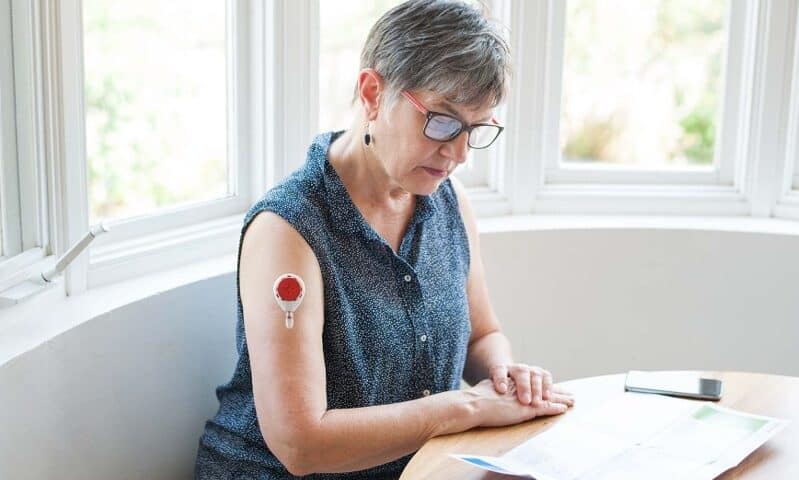Tasso has received $17 million in new funding to scale up production of its self-administered blood collection devices, designed to help enable telemedicine and diagnostic testing from the home.
The simple devices, with a push-button mechanism that requires no training, could become especially useful through the COVID-19 pandemic, according to co-founder and CEO Ben Casavant.
“The coronavirus pandemic has underscored the surging demand for more diagnostic solutions that are patient-friendly and can be deployed easily at home,” said Casavant.
Currently Tasso’s OnDemand devices are being validated for routine diagnostics, chronic disease monitoring and infectious diseases, as well as for athletic testing and virtual clinical trials. The company’s two models can collect whole dried or liquid blood samples, taken from capillaries in the upper arm, which are then mailed to a certified laboratory for analysis.
The Seattle-based company’s series A round was led by Hambrecht Ducera Growth Ventures, with additional backing from Foresite Capital, Merck’s Global Health Innovation Fund, Vertical Venture Partners, Techstars and Cedars-Sinai. The round brings Tasso’s funding total up to $38.6 million with previous grants, private investments and collaborations.
“With its talented team and proven technology platform, Tasso is poised to transform the traditional, painful, in-person blood draw process, which has been the standard of care for the past six decades,” said Hambrecht Ducera partner Elizabeth Hambrecht, who joined the company’s board of directors. “Tasso continues to consistently exceed our expectations with all of its co-development collaborations, even amid these unprecedented market challenges.”
Last year, the U.S. telemedicine market was valued at over $6.6 billion, according to the company, and is expected to dramatically accelerate after months of coronavirus-related lockdowns and postponed doctor’s office visits.
“The Merck Global Health Innovation Fund was established to enable companies like Tasso, to scale technology platforms with the potential to become integral parts of our global healthcare ecosystem in support of enhancing patient health outcomes,” said Muna Bhanji, Merck’s senior vice president of global market access. “An important area of focus is the need for innovations that provide more patient-centric approaches to enable collection of reliable and actionable clinical data.”
In 2017, Tasso received funding from the U.S. Army’s medical research institute through a collaboration developing a surveillance platform for infectious disease outbreaks. Specifically, Tasso’s blood collection devices were tapped as a way to acquire widespread samples remotely without putting phlebotomists or patients at risk of exposure.

